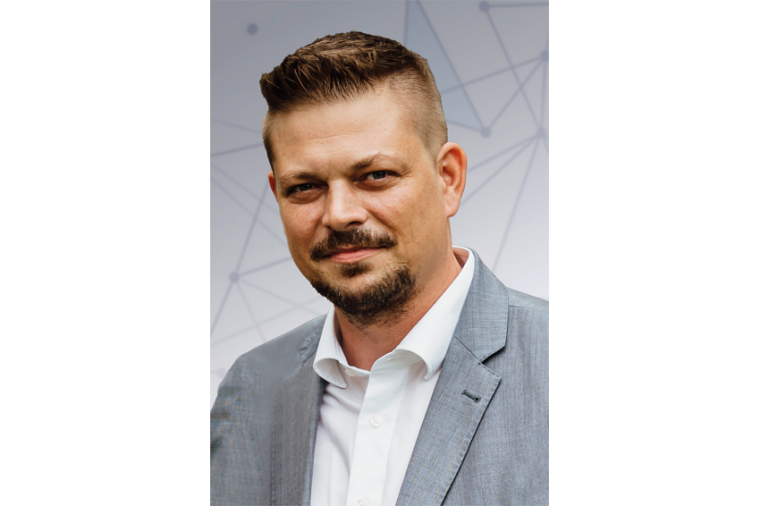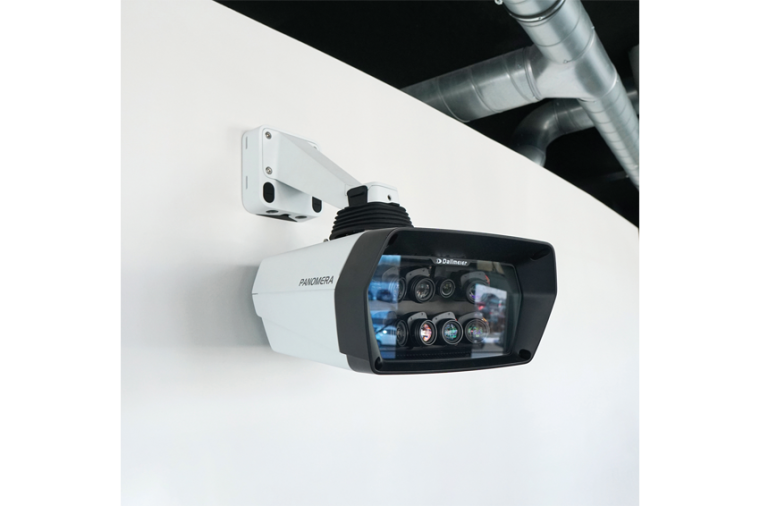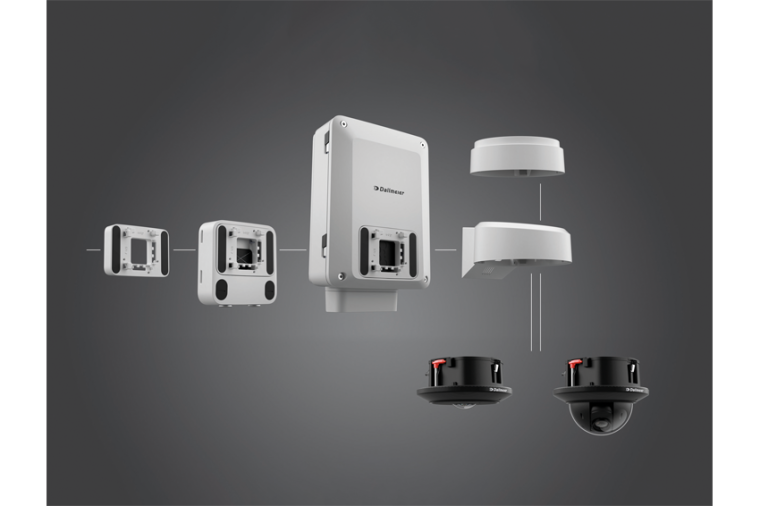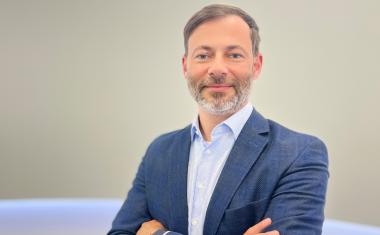Continuity and Further Growth: In Conversation with Thomas Dallmeier
Thomas Dallmeier was a member of the board of directors years before he took over from his father Dieter Dallmeier as CEO, and has been heavily involved in strategic company decisions of the family-run business. GIT SECURITY spoke with Thomas Dallmeier, amongst other matters about succession and continuity, about globalization and the ‘Made in Germany’ motto, about partnerships and growth plans as well as about clouds and new projects.

GIT SECURITY: Mr Dallmeier, last year ended with a heavy loss – you lost your father Dieter Dallmeier, and your company its founder and CEO. How have your employees, customers and partners coped?
Thomas Dallmeier: The unexpected death of my father in December 2022, despite his previous illness, was of course a great shock for all of us, not only for me as his son. Especially in a family-managed business like ours, our employees had built up a very personal relationship with Dieter Dallmeier over the many years, and in some cases decades, of working together. He was present in the company almost every day, in all departments and at all levels. I have experienced and continue to experience a high degree of loyalty and support from our employees, for which I would like to take this opportunity to express my gratitude. In this sense, this tragic event has brought us even closer together as a company.
I would also like to thank our customers and partners for their continued confidence. We have received words of sympathy from many quarters, and my father Dieter Dallmeier has received the well-deserved recognition of his life’s work in so many personal conversations and messages.
You have taken on the role of head of the company at this difficult time, but you have been in charge for a long time, and part of the executive board since 2015. Had you already prepared for your succession internally?
Thomas Dallmeier: We are a family business with more than 400 employees worldwide and a large, growing number of customers and partners. A company of this size has to be organized in a way that business can continue smoothly even when such a tragic event happens. My father, Dieter Dallmeier, and I had therefore been preparing for him to hand over the company for several years. I have gradually taken on more and more responsibility, and have now been a partner and member of the executive board for almost eight years, so there were no big operational surprises for me.
In an earlier interview, your father once said that “at Dallmeier everything will remain different”. Where do you see continuity in the future, and where do you see significant innovations or changes?
Thomas Dallmeier: A key feature of the general economy in recent decades has been almost limitless globalization. We now know about the risks and negative effects, the multiple dependencies, the highly sensitive supply chains, the cyber security threats or the quality losses. We have never resigned ourselves to these, and have often been ridiculed for it. Insisting on regional suppliers wherever possible, 100 % in-house development and especially of software components, high quality and cost savings through innovation and looking at total costs rather than individual components was and is absolutely the right strategy, especially in such a sensitive area as video security technology. Also, we invested in a completely new production facility just four years ago at our Regensburg site, from the German manufacturer Bott, by the way.
We are very well positioned in all key areas and, as I said, I have been involved in strategic corporate decisions for a long time, so it would be inconsistent for me to make significant changes now. We will certainly continue to integrate our Domera and Panomera cameras into third-party video management (VMS) and PSIM systems, and we will continue to expand our technology partnerships in analytics and other applications.
Strategically, where do you want to focus the management of the company in the near future?
Thomas Dallmeier: There will be one or two exciting innovations this year. However, in terms of the product portfolio, we are very well positioned for 2023, both in terms of cameras and software. So in addition to the cooperation with technology partners I mentioned before, we are focusing on further developing our indirect sales channel. Dallmeier partners receive solutions that are characterized by the highest quality and durability, a multitude of cost-saving features during installation and in operation, as well as the highest level of security and trustworthiness ‘Made in Germany’. We are focusing on strategic partnerships and growth beyond the DACH region, on the UK and US markets, the casino business in Asia, and the further development of our business in France.
It is also very important to me to raise awareness of how many different market segments Dallmeier actually covers. It is not unusual for Dallmeier products to be equated with the absolute premium or enterprise segment. This is of course where we are active and where we stand with our quality and patented technologies. However, against the background of our large international projects, the market sometimes overlooks the fact that we also have high-quality cameras in our portfolio in the lower and medium price segments. Many installers serving smaller industrial companies, bank branches, or retailers also use Dallmeier video systems with great success and at competitive prices. And it is not uncommon for a single Panomera to replace a large number of conventional cameras, for example in car parks or large company premises, providing a more cost-effective solution for the customer than many individual cameras.
You mentioned the development and expansion of the indirect distribution channel, which is obviously a very exciting topic for many of our readers. Can you give our installers any more information?
Thomas Dallmeier: Installers can clearly differentiate themselves from the competition with Dallmeier solutions in terms of quality, total cost of ownership, and objective security for the end customer, and achieve attractive margins and service revenues. Our new channel program will be officially launched shortly, but interested partners can already benefit from comprehensive project support and a significantly simplified onboarding process. Partners can be certified on Dallmeier solutions in just two hybrid training sessions. The special thing about Dallmeier for installers and channel partners, in addition to the products, is above all the personal support. The focus is always on maximum project success for the channel partner: from support during project initiation and planning to after-sales support and joint visits to the Dallmeier headquarters before or after a project. And we are a family business with values that we also maintain with our sales and technology partners. These include a long-term approach, trust and fairness in our dealings with each other. This is why we have a dealer registration program to protect Dallmeier installers and integrators and their relationships with end customers.
You said that strategic partnerships, especially with video management system providers, are an important component for Dallmeier’s Go-To-Market strategy. For example, you work very closely with Advancis, Genetec and Milestone. Could you tell us what the status is and what you are planning here?
Thomas Dallmeier: Yes, with pleasure. For a long time Dallmeier had the reputation in the market of being quite proprietary. This no longer reflects today’s reality, nor our future direction which is aimed at embedding our camera solutions in as many customer scenarios as possible. There is a great deal of added value for our joint end customers by partnering with leading VMS and PSIM providers: if they are already using a VMS or PSIM system from one of these vendors or have a specific solution in mind, they can benefit from the great advantages of our cameras by integrating them. For example, when it comes to cost-effective coverage of large areas or long distances, or when the priority is simple commissioning and adjustment.
This makes Dallmeier interesting for a large number of installers who have already specialized on these software providers. By integrating Dallmeier cameras, these partners can improve their competitive position, reduce the effort of planning, installing and operating their customer systems, and also benefit from attractive margins.
Integrating your flagship Panomera and Domera products with such systems is a challenging task – but one that is largely complete?
Thomas Dallmeier: The Domera and Panomera systems can be fully integrated via ONVIF and, depending on the partner system, there is even deeper integration at various levels. The integration of the Panomera systems really has been a particular challenge, but here too we are already so far along with our partners that the systems can already be used extensively by end customers, with the corresponding functional added value of multifocal sensor technology. The Panomera camera systems are officially supported by these software providers. We continue to invest heavily to ensure that the integration is as complete as possible, right down to the last functional detail. Any missing functionality will of course be added to existing installations.


‘Made in Germany’ is an important message for Dallmeier – it conveys values that are particularly well received not only in the German market, but also worldwide: data protection and cyber security, for example. Do certifications for sustainability and energy efficiency also belong here?
Thomas Dallmeier: As I mentioned earlier, the issues of data protection and cyber security, the co-responsibility for the security of our critical infrastructure in investment decisions are very important issues that are, of course, to a certain extent in our DNA as a manufacturer from a region of the world with a long tradition of the rule of law. However, there are many other aspects that are becoming increasingly important for both us and our customers. Having all the relevant environmental and energy management certifications, for example, is just as important to us as the aspect of social sustainability.
The Cloud has always been a topic at Dallmeier – but it is set to become even more important...
Thomas Dallmeier: The topic of ‘the cloud’ is as multifaceted as what customers and professionals understand by it. For us, the cloud is primarily about making technical services available in a location-independent and user-friendly way, but we see that many customers are concerned about data security and costs. Customer requirements vary widely, as they do everywhere: from companies and organizations where the surveillance environment may never be connected to the Internet to modern start-ups where everything, including video surveillance, is virtual and cloud-based. There is still a lot of education to be done about the cloud in general. In our view, there will not be a significant amount of video recording in the cloud in the B2B sector in the future. Technology is rather moving more and more towards ‘recording at the edge’ with management or services via the cloud. We try to look at the cloud from the customer’s perspective as much as possible. Our large management systems have long been able to run in the public cloud – the Danish State Railways, for example, use our software in an Azure environment alongside several hundred Domera cameras and numerous Panomera systems. In 2023 there will also be a very exciting solution for an extremely lean, mobile-oriented and, if desired, recorder-less Dallmeier video security solution.
Could you give us one or two current important customer examples where Dallmeier systems are prominently used?
Thomas Dallmeier: I can think of a number of exciting projects of course. In city surveillance, for example, we can justifiably call ourselves the market leader with projects in more than 35 major German cities. There is also a large number of end customers who appreciate the new Domera concept and use these systems. These include large customers with many small branches, such as the Landesbank Linz in Austria, or McDonalds in the UK, the National Portrait Gallery in London and of course many small and medium-sized trading and manufacturing companies in all sectors. But what makes me particularly happy is that we are winning more and more small and medium-sized industrial customers who are convinced of the special cost-benefit ratio of Panomera for their outdoor areas. A good example of this is Flottweg, a manufacturer of high-performance separation technology based in Vilsbiburg, Bavaria, built incidentally by Franz Sicherungstechnik of Mengkofen. At an international level, we are particularly pleased with the great success of our own company Dallmeier Türkiye, which was founded this year. Here too, it is not just a matter of major projects such as Istanbul Airport: our colleagues there recently put the Alsancak Stadium system in Izmir into operation, a medium-sized stadium in which Panomera is also being used with great success.
What other important projects do you have on the agenda for the medium term?
Thomas Dallmeier: We have many interesting projects in the pipeline in all our core sectors, which I cannot talk about openly of course. The topic of regional airports is certainly exciting, but also increasingly car parks, solar parks and many other ‘large areas and long distances’. Of course, AI is being used more and more to reduce false alarms, but also to reliably detect intruders, count people and to deliver other analytic functions – be it with ‘onboard’ technology from Dallmeier or from one of our analytics partners.
One last question: of course every market has its own rumours ... have there been or are there plans to sell the company?
Thomas Dallmeier: No.
Mr. Dallmeier, thank you very much for this interview.
most read

Airbus Defence and Space: Security as a strategic pillar of Europe's defense capability
Airbus Defence and Space protects sites, technologies and employees with modern security and cyber solutions - strengthening Europe's resilience in uncertain times


When the Internet stumbles: Why DNS is important
When DNS fails, the internet stumbles-AWS outage proves resilience and redundancy are vital for digital trust

Integrated and Futureproof: Traka’s Next Chapter
Interview with Stefni Oliver on Traka’s Vision for the Future

Assa Abloy's battery-powered Aperio KL100 secures lockers
Boost workplace security and operational flexibility by securing more than just doors.








